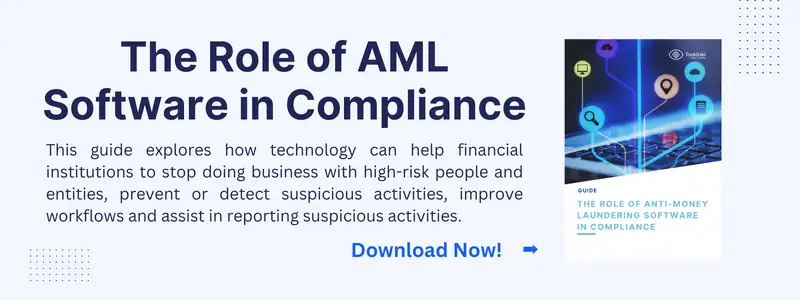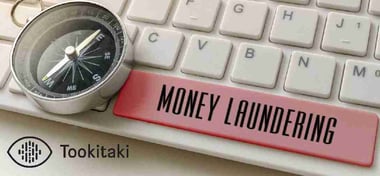Do you know how detectives keep track of all their clues when solving a mystery? Well, in the world of AML, or Anti-Money Laundering, experts do something similar. They keep records and reports to catch bad guys who are trying to hide stolen money. According to industry reports, companies spend, on average, $10.1 million a year on AML compliance. Nearly 30% of this budget is allocated to the record-keeping process.
But why is record-keeping important in AML compliance? It forms the backbone of any effective AML program. Detailed records can serve as substantial evidence in legal cases and help in internal audits.
What is Record Keeping and Reporting?
Record keeping and reporting are fundamental building blocks of Anti-Money Laundering (AML) compliance. With the onset of complex financial crimes, compliance professionals must have a system in place to keep track of all transactions. This helps not only in running the business smoothly but also in providing critical evidence when needed.
The Growing Importance
Due to the recent rise in financial crimes, regulatory bodies have been cracking down hard on organizations that don't maintain proper records. For instance, in 2019, the U.S. saw an increase in AML penalties by 160%. This statistic alone underlines the immediate need for effective record-keeping systems.
Legal Requirements
As far as legal obligations go, failing to keep proper records could result in substantial fines and even imprisonment. Laws such as the Bank Secrecy Act (BSA) in the U.S. mandate strict record-keeping and reporting requirements. Under the Bank Secrecy Act (BSA), institutions can be fined up to $500,000 or twice the amount involved in the transaction, whichever is greater.
Why is Record Keeping Important?
In this age of digital finance, keeping a paper trail has become even more vital for multiple reasons.
Tracking Financial Flow
A well-structured record-keeping system allows for better tracking of the financial flow, which in turn helps in making informed decisions. In terms of AML compliance, a good record allows for easy tracking of any suspicious transactions.
Audit Preparedness
The "what is record keeping" query isn't just about storing files but also preparing for unexpected audits. You could face internal audits, external audits, or even sudden regulatory reviews. Being prepared for these helps in averting any crisis. A study by PwC revealed that companies with structured record-keeping systems face 21% fewer audit complications compared to those that don't have a system in place.
How to Maintain Records
Maintaining records may sound like a boring job, but it's crucial in Anti-Money Laundering (AML) compliance. The world of compliance is rife with numerous regulations, and having organized records can serve as your first line of defense.
Physical Vs. Digital
In the age of technology, transitioning from physical to digital records is essential. Digital records are easier to search, more secure, and cost-effective.
Software Solutions
Today's market offers various AML data analytics and record-keeping software. These digital platforms often include built-in compliance checks, which makes your life a lot easier.
Regular Updates
It's not enough to keep records; they also have to be regularly updated. Make it a practice to routinely check and update your files.
Reporting Suspicious Activity
What is Reporting?
So, you're keeping records, but what if you see something strange? What if you suddenly see that a whole bunch of money got moved around in a way that doesn't make sense? That's when reporting comes in. Reporting is the act of telling someone in authority that something doesn't look right. Think of it like this: if you were playing a game at school and saw someone cheating, you'd report it to the teacher, right? In the AML world, the "teacher" is usually a government agency that checks to make sure everything is on the up and up.
Noticing a red flag? This is where the "why reporting is important" question kicks in. Reporting suspicious activities is not just a best practice; it's often a legal requirement.
Internal Reporting Systems
Your firm should have an internal system where employees can report suspicious activities without fear of retribution. A well-implemented system can often catch fraudulent activities before they become a serious issue.
Legal Obligations
Various regulations require businesses to report suspicious activities. Failure to report can result in severe legal consequences, including hefty fines and even jail time.
Best Practices for Record Keeping and Reporting
Given its importance, what are the best practices that compliance professionals should adhere to?
- Regular Audits: Always be prepared for internal and external audits. A well-organized record can significantly speed up this process.
- Data Encryption: Make sure that all sensitive data is encrypted and only accessible to authorized personnel.
- Frequent Updates: Compliance rules change regularly. Ensure that your records are updated in line with new guidelines.
- Automated Solutions: Wherever possible, employ automated solutions that can ease the record-keeping burden and minimize human error.
Example:
A recent survey by McKinsey showed that companies employing automated solutions for record-keeping saved up to 20% in compliance-related costs.
Why Both Are Like Two Sides of a Coin
Record-keeping and reporting are two sides of the same coin. It's like having a secret code and a decoder ring—you need both to solve a mystery. Record-keeping helps us gather all the clues, and reporting helps us take action on those clues. Without good records, reporting becomes useless. And without reporting, good records don't do much good.
Real-world Impact
So, why is this all important? Well, think about your favorite superhero. They often fight against people who are up to no good, right? In the real world, we also have 'bad guys,' but instead of using superpowers to stop them, we use things like record-keeping and reporting. By doing this well, we can actually help make the world a safer place!
Final Thoughts
Record keeping and reporting might not be the most glamorous aspects of the business, but they are fundamental, especially in the realm of AML compliance. Not only can effective record-keeping save your firm from legal troubles, but it can also provide a robust framework for internal processes and decision-making.
It’s essential to continuously review your record-keeping and reporting systems to ensure they meet current regulatory standards. Utilize digital solutions and software for efficiency, and make sure you report any suspicious activity to avoid severe consequences. According to a study, 67% of companies that employed effective record-keeping and reporting systems saw an improvement in their overall operational efficiency.
Remember, not only is effective record keeping the law, but it's also good business practice. Firms that focus on robust record keeping are often the ones that withstand regulatory scrutiny and flourish in their respective industries. So take record-keeping seriously, because it's more important than you may think.
Frequently Asked Questions (FAQs)
What is a record-keeping process?
A record-keeping process is a systematic way to collect, organize, and store documents required for business operations and compliance.
What is record-keeping compliance?
Record-keeping compliance refers to meeting legal and regulatory requirements related to the storage, access, and management of business records.
What is record-keeping and reporting?
Record-keeping and reporting involve the systematic collection and storage of records along with the legal obligation to report specific types of information.
Why is Timely Reporting Crucial?
Timely reporting allows authorities to take immediate action, thereby reducing the impact of the suspicious activity.
How Often Should Records Be Audited?
The frequency of audits depends on the industry, but quarterly audits are generally recommended.
What are the Penalties for Inadequate Record Keeping?
Penalties can vary but may include hefty fines, legal repercussions, and in severe cases, business closures.
Anti-Financial Crime Compliance with Tookitaki?






